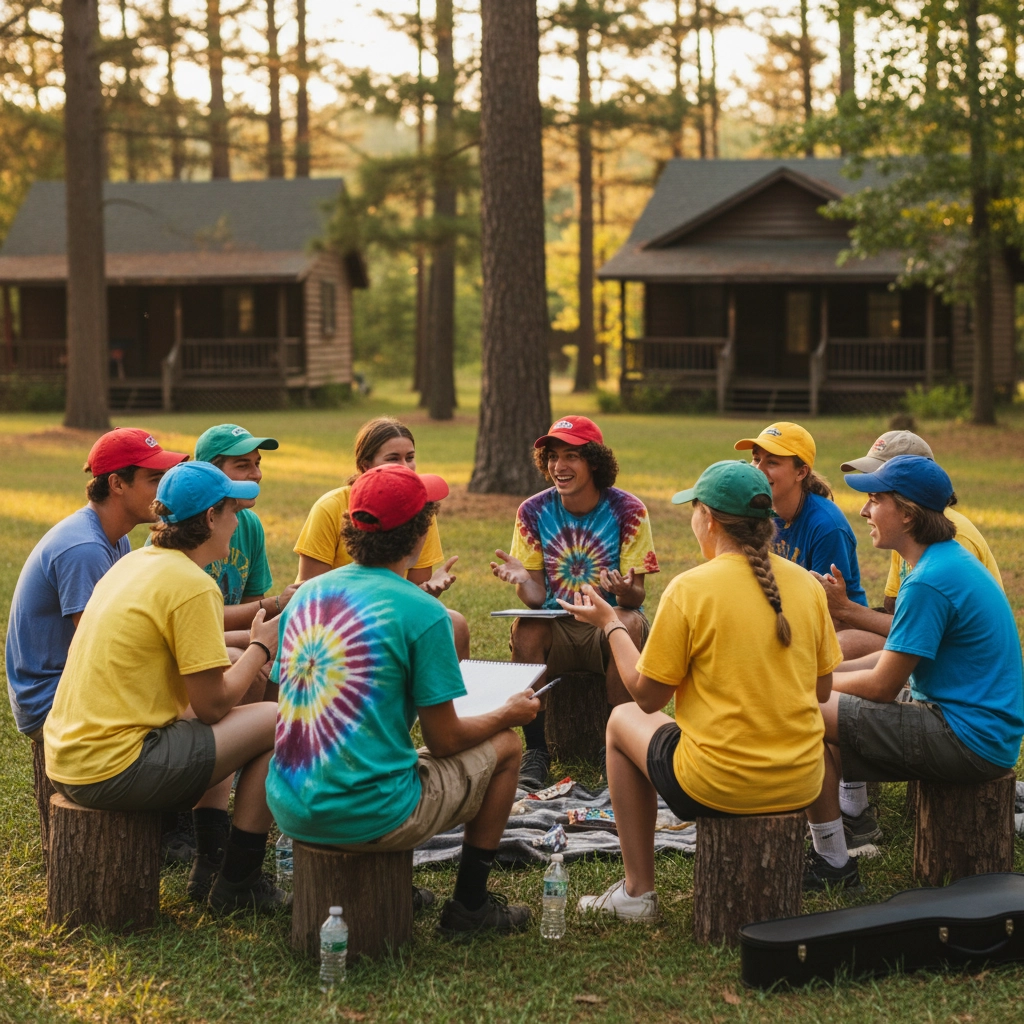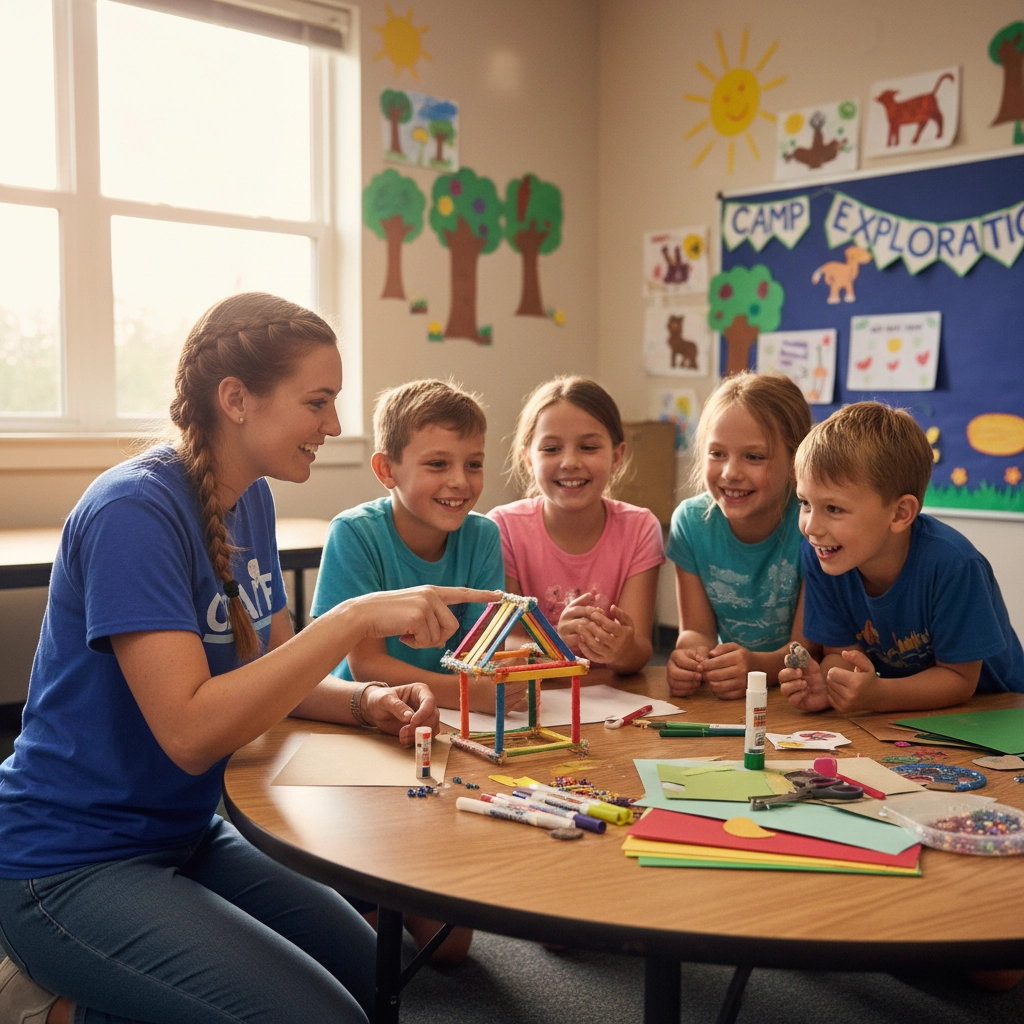The Summer Camp Daily Brief – October 22, 2025
- Matthew Kaufman

- Oct 22
- 6 min read
Picture this: It's week three of camp, and your 20-year-old counselor Maya approaches you during evening staff check-in. "I love working with the kids," she says, "but I feel like I'm not growing professionally. At my winter job, my manager helped me learn new software. Here, I just feel like I'm babysitting."
Sound familiar? If you've been scratching your head about Gen Z staff retention, you're not alone. But here's the thing: Maya and her generation aren't asking for the impossible. They're asking for exactly what we should be giving them.
Story of the Day
Fresh research from Deloitte reveals something camp directors have been feeling all season: Gen Z staff value learning, growth, and purpose more than traditional career ladders. The study shows these emerging workers are actively using AI and tech tools in their upskilling plans: and they expect employers to support that journey, not ignore it.
For camps, this isn't just a nice-to-know statistic. It's a roadmap for building the kind of staff culture that doesn't just survive summer: it thrives year after year.
Why does this matter so much? Because seasonal staffing is dominated by Gen Z workers. If your recruitment, training, and retention strategies don't align with what they're actually looking for, you're swimming upstream against a generational tide.

What This Means in the Real World of Camp
Let's get practical about what "learning, growth, and purpose" actually looks like when you're managing a staff of 18-to-22-year-olds who are responsible for keeping kids safe, engaged, and happy.
First, forget the old model where summer jobs were just about showing up and collecting a paycheck. Today's staff want to walk away from camp with new skills they can name, describe, and use in their next opportunity. That means your training can't just cover "how to supervise arts and crafts": it needs to help them see how supervising arts and crafts develops project management, creative facilitation, and conflict resolution skills.
Second, they want to understand the "why" behind what they're doing. When you ask a counselor to lead a problem-solving activity with campers, they want to know how that activity supports child development, not just how to run it. When they see the connection between their daily work and meaningful outcomes for kids, engagement skyrockets.
Third, they're already using technology to learn and grow: whether you're aware of it or not. The smart move isn't to pretend this isn't happening. It's to help them use these tools thoughtfully while building the offline problem-solving skills that make great camp staff.
Action Steps This Week
Reframe Orientation Around Growth Goals
Instead of starting staff orientation with policies and procedures, try opening with a simple question: "What do you want to be better at by the end of this summer?"
Take Jake, a first-year counselor who said he wanted to get better at public speaking. His camp director didn't just nod and move on: she made sure Jake got opportunities to lead all-camp announcements, facilitate evening programs, and even present at the final staff meeting. By August, Jake was confidently facilitating job interviews at his college career center.
Here's how to make this work: During your first staff meeting, have everyone write down 2-3 skills they want to develop. Then, actively look for ways to give them practice. The shy counselor who wants to build confidence? Put them in charge of leading camp songs. The organized one who wants management experience? Have them coordinate the weekly staff social events.
Document these goals and check in on them regularly. It shows you're paying attention to them as people, not just as seasonal labor.
Establish Training Cohorts
Create small groups of 4-5 staff members who meet weekly to share challenges, celebrate wins, and learn from each other. Think of it like study groups, but for becoming better camp professionals.
One camp in Vermont started "Learning Labs" where counselors teaching similar age groups would spend 30 minutes each week sharing what was working, what wasn't, and brainstorming solutions together. The result? Staff felt less isolated, problems got solved faster, and veteran counselors naturally emerged as mentors.
The magic happens when you give these groups a specific focus each week. Week one might be "Managing homesickness," week two could be "Creative rainy-day activities," and week three might tackle "Building independence in campers." Staff get practical help with real challenges while developing the collaborative problem-solving skills that make them valuable in any workplace.
Clarify Each Role's Purpose
Every position at camp: from junior counselor to kitchen staff: contributes to something bigger than daily tasks. Your job is to help staff see and articulate that contribution.
Instead of saying "You're responsible for cleanup after meals," try "You're creating a welcoming space that helps campers feel at home and teaches them responsibility for their environment." Instead of "Lead swimming instruction," frame it as "You're building water safety skills and confidence that will keep kids safe for life."

This isn't just feel-good language. When staff can clearly explain how their work connects to positive outcomes for children, they're developing the kind of purpose-driven thinking that employers value everywhere.
Create simple "impact statements" for each role and review them during training. Better yet, have staff write their own impact statements and share them with the group. You'll be amazed at the insights they come up with.
Training Tip: The Mid-Season Check-In Guide
Here's your step-by-step playbook for keeping Gen Z staff engaged and growing through the middle weeks of camp:
Week 1: Schedule the Conversation Don't wait for problems to surface. Block out 15 minutes with each staff member during week 3 or 4 of camp. Frame it as a growth conversation, not a performance review.
Week 2: Prepare Your Questions
"What's one thing you've learned so far that surprised you?"
"What skill do you feel yourself getting better at?"
"What's one challenge you're still figuring out?"
"What kind of support would help you the most right now?"
"How are you using any apps or tools to get better at your job?"
Week 3: Listen for Growth Opportunities Pay attention to gaps between what they want to improve and what they're currently doing. If someone wants to get better at conflict resolution but they're avoiding addressing behavioral issues with campers, that's your coaching opportunity.
Week 4: Create Action Plans Don't just listen: act. If a counselor wants to improve their activity planning, pair them with your most creative veteran staff member. If someone's struggling with homesick campers, give them specific resources and check back in a few days.
Week 5: Follow Through The conversation only matters if you follow up. Send a quick text or catch them during a meal to ask how the new strategy is working. Recognition of growth, even small steps, builds momentum.
The Bigger Picture: Building Staff Culture That Lasts
When you invest in your Gen Z staff as people and professionals, something beautiful happens. They don't just become better camp counselors: they become advocates for your program, return staff members, and eventually, camp leaders themselves.
But here's the secret sauce: the same approach that helps staff grow also helps campers thrive. When your counselors are practiced problem-solvers who can think creatively, communicate clearly, and adapt to challenges, they model exactly the skills you want campers to develop.
This is where camp's unique value shines. Unlike office jobs or retail work, camp gives staff constant opportunities to practice leadership, creative thinking, and interpersonal skills with real stakes and immediate feedback. A counselor who successfully helps a homesick 8-year-old isn't just doing their job: they're developing emotional intelligence, communication skills, and resilience that will serve them everywhere.
The key is helping them see these connections. When staff understand that managing a cabin teaches project management, facilitating activities develops presentation skills, and resolving conflicts builds negotiation abilities, they approach their work with intention and pride.
Your camp becomes a place where 20-year-olds discover they're capable of more than they realized, where they practice skills that matter beyond summer, and where they experience the deep satisfaction of meaningful work.
That's the kind of staff culture that doesn't just fill positions: it creates leaders. And those leaders create the kind of camp experience that changes kids' lives.
Ready to Build Something Great?
The camps that thrive in the coming years will be the ones that see their Gen Z staff not as temporary workers, but as emerging professionals who deserve investment, growth opportunities, and purpose-driven work.
Start small. Pick one action step from this week's list and try it with your current staff. Notice what happens when you ask about their goals, create opportunities for peer learning, or help them connect their daily work to bigger outcomes.
Remember: when you help staff grow, they help campers grow. And that's what we're all here for.
Follow @mattlovescamp on Instagram for daily insights and connect with camp professionals building the future at ilove.camp.
Let's keep building staff culture that doesn't just support campers: but supports the incredible young people we call staff too.



Comments